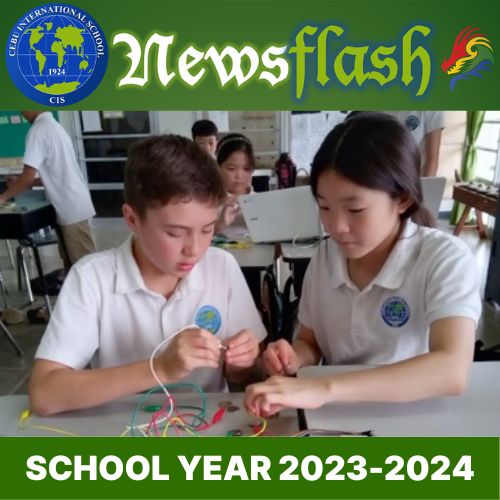
Admin News
by Dr. Gwyn Underwood, Superintendent
Learning to Fail Well
When asked what failure means to them, most people initially associate it with not being able to reach some sort of objective. It is perceived to be a negative occurrence and something to be avoided.
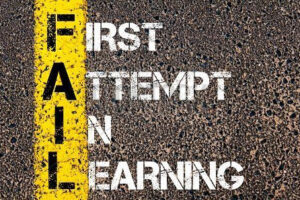
However, there is another side to failure that is often ignored or forgotten, and that is failure is a natural and integral process for learning! In fact, failure acts as a form of feedback that we use to consider what is not working, and inform our options of what to do to make it happen next time!
Therefore when a student fails (and they should expect that to happen frequently!), they should reflect on what went wrong, consider what they can do to improve on, and then act accordingly. By addressing each failure in this manner, over time students can become successful in their actions and continuously refine their skills. That is, they will learn to learn!
Students, here is some helpful advice on how to fail well and how to fail badly by a specialist in this field, Mr. Lance King, who was integral in developing the ATLs we use in our IB programs.
Failing well…
- Acknowledging your failures
- taking responsibility for your own actions
- working out what you did wrong
- making changes
- having another go
Reference: The Importance of Failing Well by Lance King
Failing badly
- Blaming the school or the ‘system’
- Blaming other people
- Pretending you never have any failures
- Adding drama to failures to avoid dealing with them
- Avoiding any activity that could possibly result in failure
- Dropping any activity after the first failure
- Making the same mistake over and over
- Universalising failure
Parents, here is some helpful advice on what you can do to help your child fail well and learn, and how to avoid actions that will cause your child to fail badly and negatively impact their learning, as well as their resilience in life skills.
Controlling parents…
- Give lots of unsolicited advice and direction (“That’s not the right way to load the dishwasher…”)
- Take over (“I’ll just do it, you go play…”)
- Offer extrinsic motivators (“If you walk the dog each morning, I’ll buy you those sneakers…”)
- Provide solutions before the child has a chance to struggle with the problem (“You know that five times four is twenty…”)
- Don’t let children make their own decisions (“Do your math first, and then your spelling…”)
Reference: The Gift of Failure: How the Best Parents Learn to Let Go So Their Children Can Succeed by Lahey, Jessica
Autonomy-supportive parents…
- Allow for mistakes and help children understand the consequences of those mistakes (“Pick out the lumps in the oatmeal and I’ll show you how to avoid that mistake next time.”)
- Value the mistakes as much as the successes (“I’m so proud of you for sticking with that even though it was hard for you.”)
- Acknowledge children’s feelings of frustration (“I get mad, too, when I can’t do something right the first time, but I keep trying.”)
- Give feedback (“Look down at your buttons; something looks off— can you figure out what’s wrong?”)
As we approach our Spring/Easter break, I encourage you to reflect on the above suggestions and consider a few areas you can try to help you fail well (or help your child fail well). Have a relaxing weekend!
Upcoming events of note
- Mar 14 – 16: ISAC 3 @ BISB
- Mar 18 – Apr 1: IB Art Exhibition
- Mar 25 – Apr 1: Spring/Easter Break
- Apr 9: Public Holiday (Day of Valor)
- Apr 10: Public Holiday (Eid-al-Fitr)
- Apr 12: MYP Personal Project Exhibition
- Apr 18: DP TOK Exhibition
- Apr 24 – May 16: IBDP Exams
Please refer to the CIS Event Calendar for the complete calendar of school events.
STEM Week Activities
by Ms. Haydee Montero, MYP Science Teacher
CIS once again electrified the entire campus with the buzz of STEM Week, a thrilling celebration of science, technology, engineering, and mathematics. From captivating challenges to mind-bending HAD-like competitions, the week-long festivities showcased the ingenuity and creativity of CIS students across all grade levels.
Tower of Hanoi Challenge
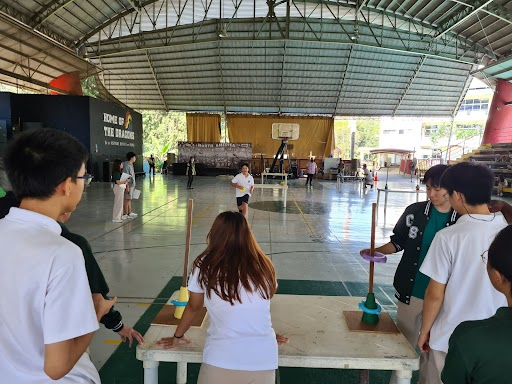
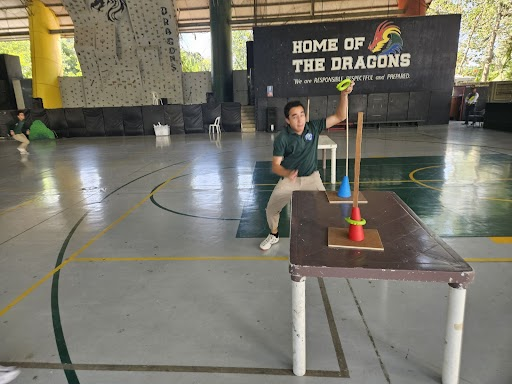
The excitement kicked off with a flurry of activities, including the Mischievous Dragon challenge, where students put their problem-solving skills to the test. In the 4pics1 Science word challenge, students exercised their scientific vocabulary muscles to decipher challenging puzzles. Meanwhile, the Periodic Table Challenge challenged students’ knowledge of the elements, while the Digits of Pi challenge pushed their mathematical limits.
One of the highlights of the week was the Exploratory Laboratory, where early years students immersed themselves in hands-on experiments and scientific inquiry. From chemistry to physics, biology to engineering, students explored a wide array of STEM topics, sparking their curiosity and inspiring a love for discovery.
The most thrilling moment came during Monday’s whole school assembly, where CIS students from early years to senior high school joined forces for an aeronautical extravaganza. With paper airplanes in hand, students eagerly launched their creations into the air, filling the dome with massive flights of planes. It was a sight to behold as students demonstrated their engineering prowess and aerodynamic knowledge in a playful yet educational manner.
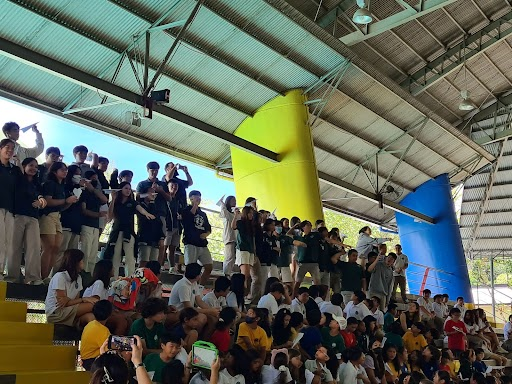
Not to be outdone, students also showcased their dancing skills as mathematicians, led by talented Grade 11 students and dedicated Science and Math teachers. Through creative choreography and synchronized movements, they celebrated the beauty of mathematics and the joy of interdisciplinary collaboration.
As the week progressed, students faced a series of mind-bending challenges designed to test their knowledge and teamwork. The “Organs of the Body Scavenger Hunt” put their understanding of human anatomy to the ultimate test, as they raced against the clock to locate hidden organs and put them together in a human body-outlined cardboard. Then, shifting gears, students tackled the problem-solving puzzle of the “Tower of Hanoi,” where strategic thinking and mathematical reasoning were essential for success.
With each activity and challenge, STEM Week at CIS embodied the spirit of exploration, collaboration, and innovation. It was a week filled with excitement, learning, and unforgettable moments that showcased the boundless potential of CIS students in the fields of science, technology, engineering, and mathematics. As the week came to a close, students left inspired and empowered, ready to take on the challenges of the future with confidence and creativity.
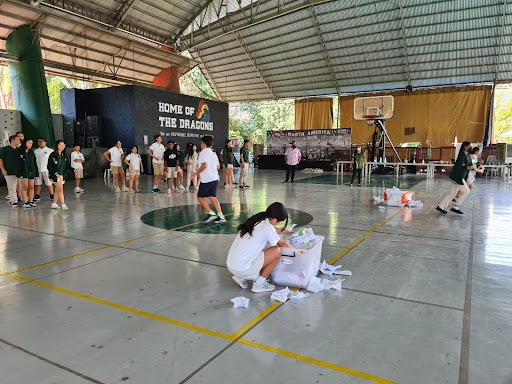
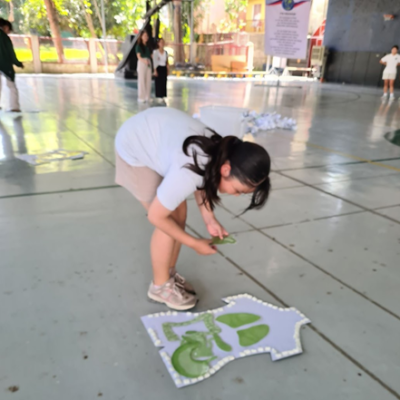
Elementary: Media Literacy
by Ms. Mary Jean Cordova, Media Literacy Teacher/Media Center Coordinator
In our ongoing unit centered around the transdisciplinary theme, ‘How The World Works,’ students have been actively applying their Media Literacy skills. During our class, we’ve delved into various concepts being explored in their inquiry in homeroom. Throughout this process, students have embraced technology as a valuable tool for learning, gaining insights into how to navigate the online world safely.
Students in the Early Years used their research skills to look into the different musical instruments they are inquiring about in homeroom. They started by exploring the MISO (Media, Interview, Survey, Observation) method, identifying the ways characters in stories have used to find and gather information about their desired topics.
Additionally, students utilized the voice and image search feature in Google to learn more about specific instruments and how they produce sounds. They were able to share what they found during their research and will continue to learn more about it as we conduct a survey within the learning community to further build on their understanding of the connection between music and our emotions.
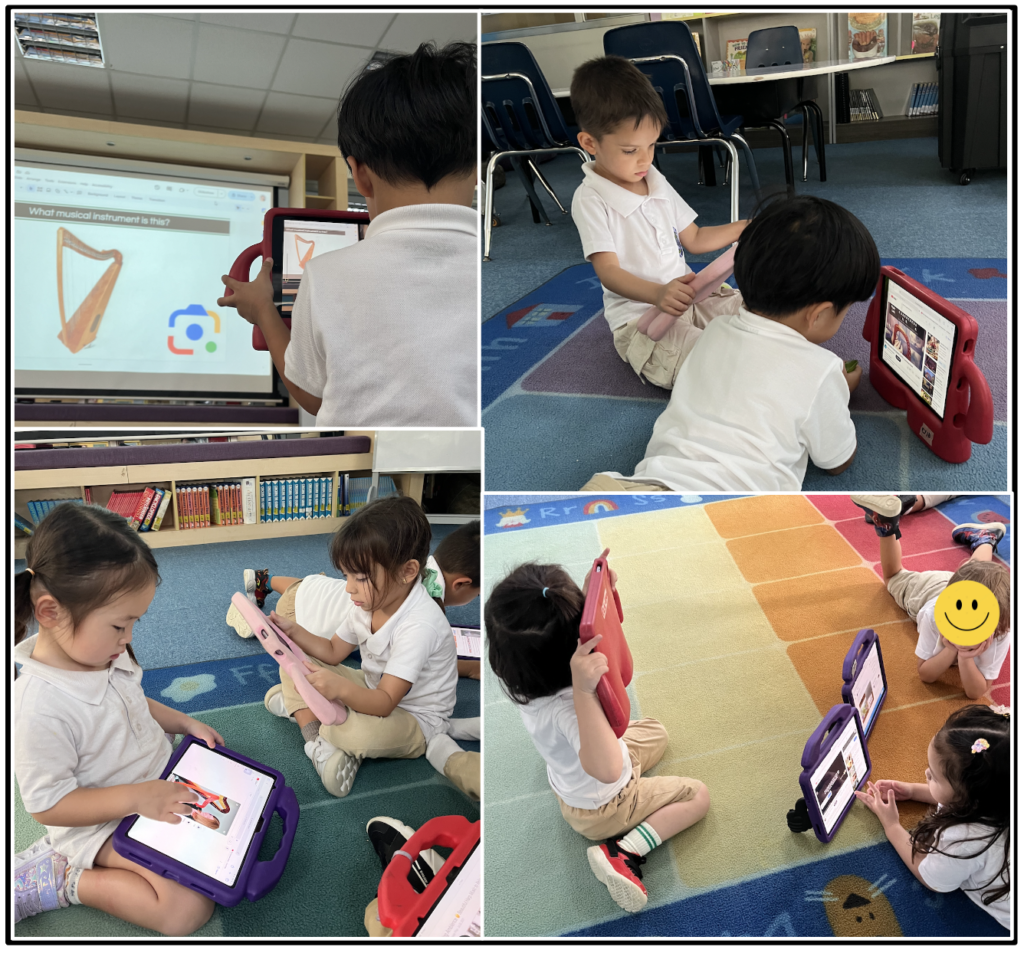
Students in Kinder and Grade 1 demonstrated ways to be smart and safe online as they continued to inquire about forces and energy in Media Literacy. They were able to identify the keywords to use based on their research questions when searching online and reflected on how it helped narrow down the search results. Students understood the importance of citing their sources as they demonstrated basic citation skills, such as writing the name of the author, title of the article, and the name of the website.
During their research, they noticed that sometimes the internet provided information they were not looking for, and they realized the importance of reading the information found to determine if it was relevant to their search.
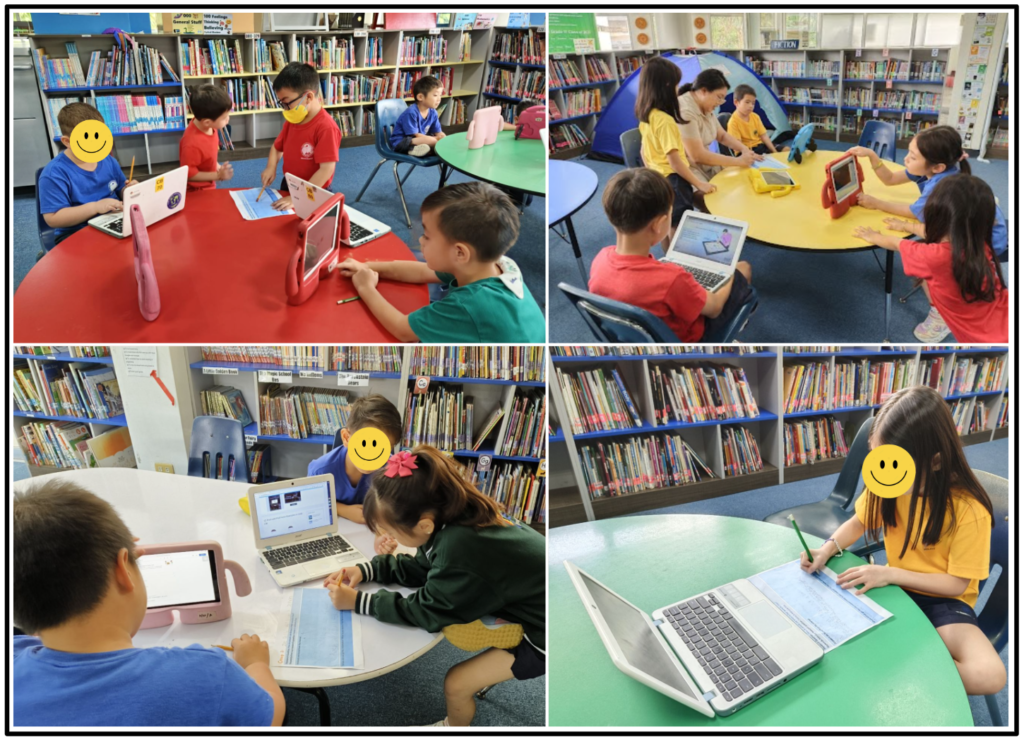
Students in Grades 2 and 3 showcased their research skills while investigating the topic of the Earth by critically evaluating sources of information. They successfully discerned the distinguishing features of reliable sources compared to unreliable ones. Reflecting on their findings, students emphasized the significance of ensuring that the sources they use can be trusted, as unreliable sources may provide false information on the researched topic. To enhance their Media Literacy skills, they engaged in lateral reading during their research process, actively seeking additional information about the source and cross-referencing it with other sources to validate its credibility.
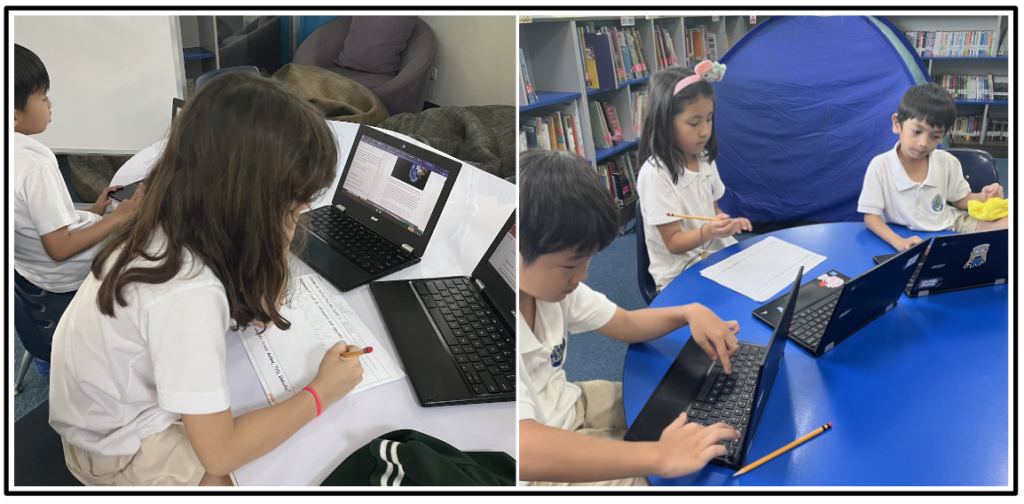
Students in Grades 4 and 5 delved into the rapidly growing Artificial Intelligence, focusing particularly on Generative AIs available online. They examined not only their capabilities and limitations but also common misconceptions surrounding these AIs. While experimenting with their functions, students discovered that these AIs retrieve information from the internet, implying that they can also generate erroneous information. Reflecting on this, students emphasized the importance of critically evaluating the information generated, recognizing that AI should not be solely relied upon. They suggested that AI could serve as an assistive tool or a collaborative partner in generating ideas. Additionally, students honed their skills in creating clear and effective prompts to ensure desired results. Through these activities, students in Grades 4 and 5 showcased their critical thinking abilities regarding the effective and ethical utilization of AI.
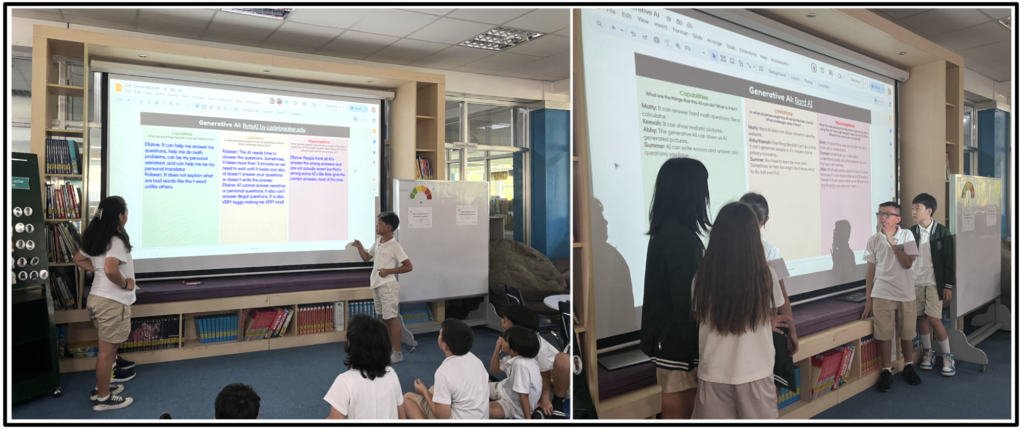
DP Mathematics: Math Explorations
by Ms. Maria Victoria Bacus, DP Math Applications and Interpretation (AI) SL Teacher
Math Exploration (Year 1 – Choosing their Topics and Finding their Ways)
Before the end of their first year of Mathematics Applications and Interpretations Standard Level class, students had the opportunity to brainstorm ideas for their possible Math exploration topics. In pairs, they answered questions about their hobbies, interests, future plans, and qualities that make them unique. They then chose the area in which they were most interested and passionate about to explore it further and demonstrate their understanding of that specific area of mathematics.
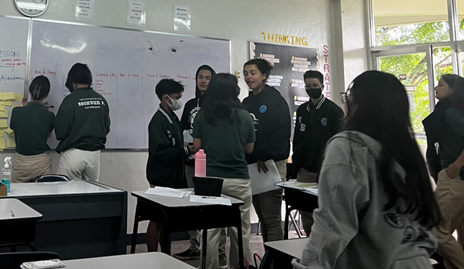
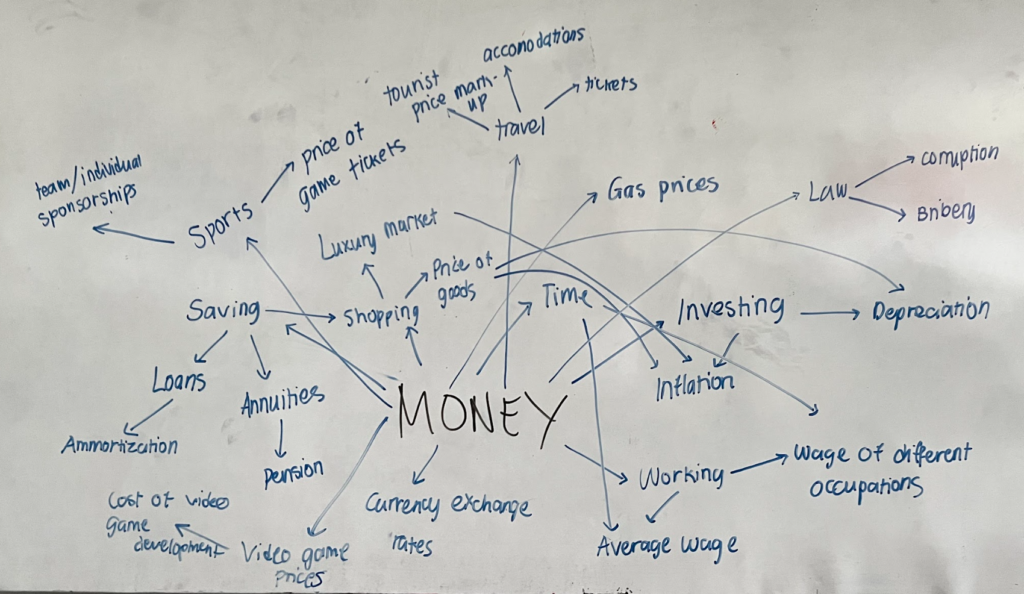
Math Exploration (Year 2 – Working with Data and Discovering New Things)
In Year 2, students were tasked with challenging themselves by investigating various areas of mathematics and demonstrating their understanding by working with the data gathered and analyzing it. Their topics varied, ranging from examining relationships between two variables, testing for independence, and utilizing Voronoi diagrams to identify the nearest evacuation centers in case of emergencies.
Below are some photos from the students’ Internal Assessments and their reflections on their journey of completing them.
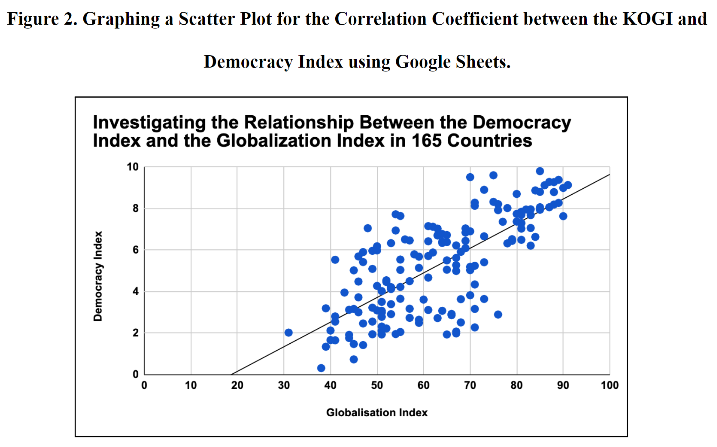
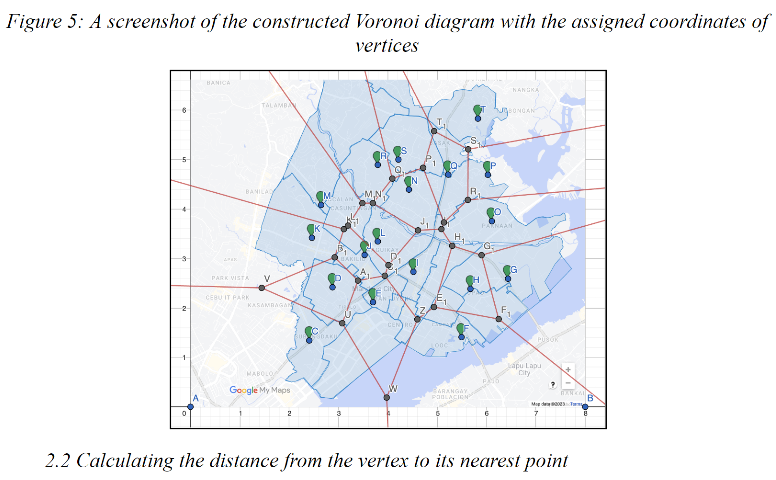
As an (almost finished) Grade 12 DP student, one of my biggest accomplishments in Math class is completing my Internal Assessment. My final investigation was on whether or not there is an observable relationship between the KOF Globalization Index and Democracy Index as seen in 164 different countries in 2022. I chose to integrate the mathematical concepts of Pearson’s Correlation Coefficient, Linear Regression, and Extrapolation specifically. The process of completing my IA was relatively tedious, involving many calculations and revisions to ensure the accuracy of the conclusion. However, I would say that it was also enjoyable as it is a topic that I genuinely was interested in and is, additionally, relevant in a real world context. In my IA, I concluded that there is an observable moderate positive correlation between a country’s KOF Globalization Index and the Democracy Index.
Throughout the whole two years of being in this class, Math AI SL provided me with sufficient mathematical skill sets that are quite relevant to our day-to-day lives. I came across topics that I had never encountered before or just did not possess enough knowledge on. From this, I made my IA about Voronoi diagrams which was very interesting. I tailored such an approach to fit real-world situations, especially in Cebu regarding its evacuation centers. Through applying my knowledge on the technicalities of Voronoi diagrams the findings of my IA can be utilized as a reference for improving the locations of evacuation centers that can shelter thousands of Cebuanos.
I have elevated my math solving skills in comparison to grade 11. Starting grade 11 I was clueless as to how enriching this class would be. This helped me follow my interests especially through my internal assessment where I got to investigate environmental impacts on temperature. This was fun as I was able to get the satisfaction of solving problems and expanding my Math knowledge especially in terms of using a calculator to help facilitate my learning. This will greatly help me further down the line in my own personal life as well as university and work life. Truly an enjoyable experience 10/10.
Maths AI has provided me with a readily applicable mathematical skill set which I have had the pleasure of developing over these past two years. Since the conclusion of our maths IAs, we have had the opportunity to explore several different branches of mathematical exploration, helping us better understand and navigate the world.
As a person who never really enjoyed Math classes, taking Math AI has proven wrong in that Math can be a fun yet insightful subject. This is only enhanced in the making of the IA. I realized that real-world situations are closely interconnected with Mathematics. Through my IA, I developed my understanding of the intensity of global warming which is statistically supported by relevant data. Through the appropriate mathematical computations, the IA has taught me about how important it is to begin starting appropriate responses to urgent environmental concerns.
Having completed the Internal Assessment for Math AI, I’ve experienced a sense of growth and accomplishment. By utilizing various statistical calculations such as Pearson’s Correlation Coefficient, I was able to find the link between average country IQ and “happiness” scores. It makes me glad knowing that I can apply the research skills which I have gained in future projects relevant to my academic pursuits.
Math AI is a class that has prepared me for the real world application of mathematics. It has also enabled me to take a few more liberties with my IA, in a new class syllabus. The support I was able to readily find was very different. Having moved from Math AA to AI, my IA planning has been a very rapid development process. Since those IAs have been turned in, I feel as though a variety of paths have opened up to me. The real world applications of mathematics here in the Analysis and Interpretation section have made me more receptive to the idea of a numbers focused career.
My IA journey was a long and tough process as I had chosen a topic that not many other students have explored: finance. However, it was enjoyable researching data while having to utilize my own creativity since there aren’t many, if any, similar IAs I can take inspiration from.
College & Careers Counselor Corner
by Ms. Jenny Basa, College Counselor
CommonApp Essay Prompts for 2024-2025 (at least 250 words and maximum of 650 words)
Some students have a background, identity, interest, or talent that is so meaningful they believe their application would be incomplete without it. If this sounds like you, then please share your story.
Reflect on something that someone has done for you that has made you happy or thankful in a surprising way. How has this gratitude affected or motivated you?
The lessons we take from obstacles we encounter can be fundamental to later success. Recount a time when you faced a challenge, setback, or failure. How did it affect you, and what did you learn from the experience?
Discuss an accomplishment, event, or realization that sparked a period of personal growth and a new understanding of yourself or others.
Share an essay on any topic of your choice. It can be one you’ve already written, one that responds to a different prompt, or one of your own design.
Reflect on a time when you questioned or challenged a belief or idea. What prompted your thinking? What was the outcome?
Describe a topic, idea, or concept you find so engaging that it makes you lose track of time. Why does it captivate you? What or who do you turn to when you want to learn more?
DATE
EVENT
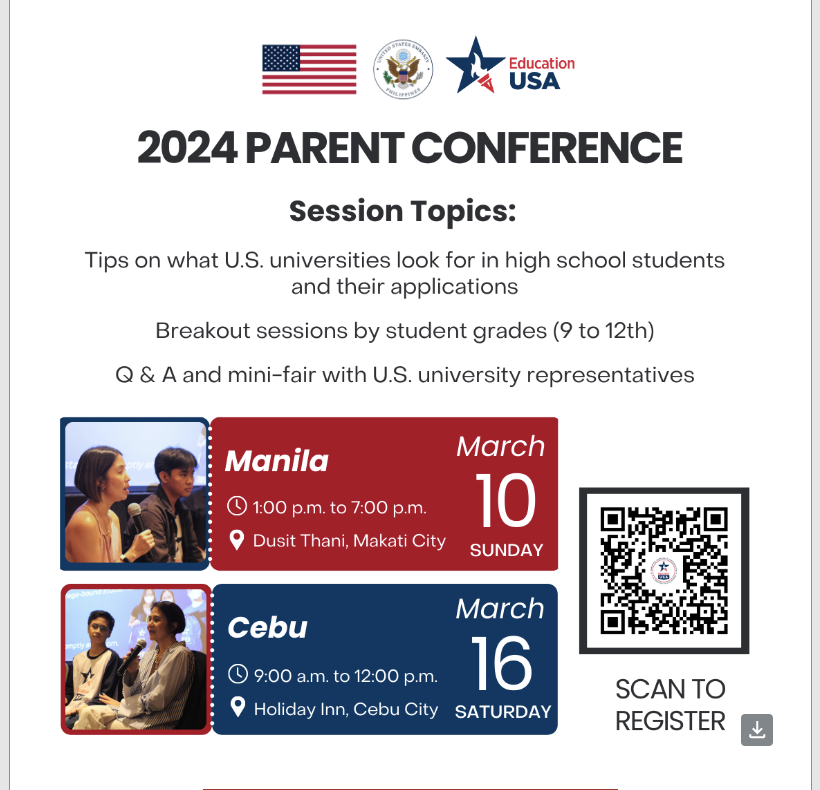
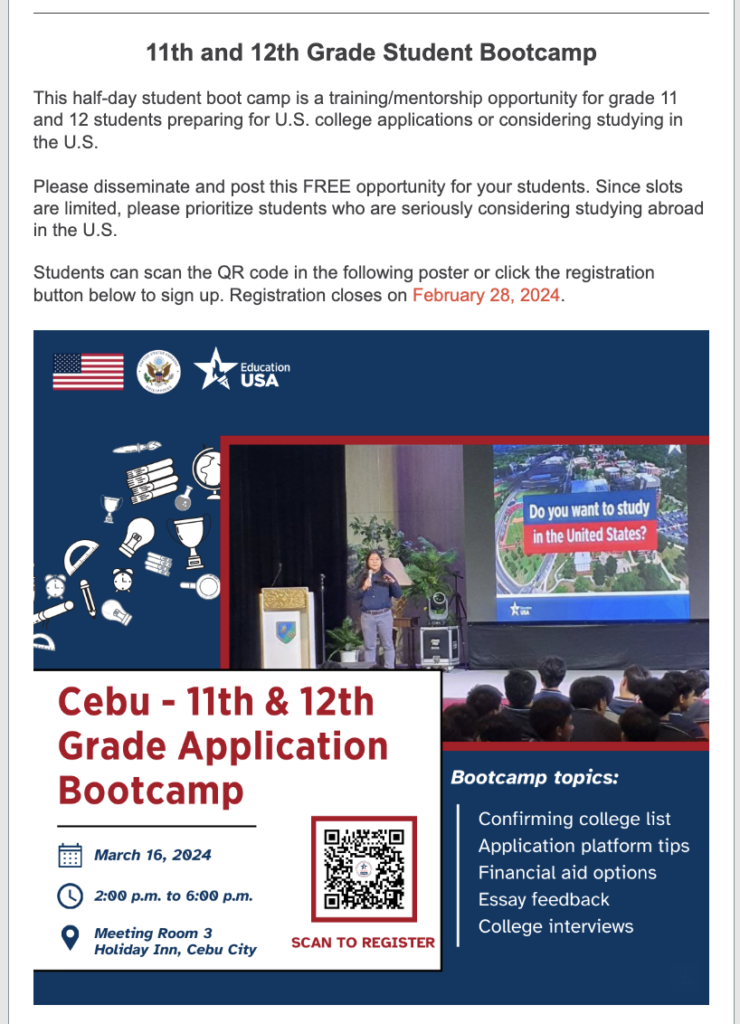
SAT Update
2023–24 School Year Test Dates
| Test Date | Deadline for Registration, Changes and Regular Cancellation |
| May 4, 2024 | April 19, 2024 |
| June 1, 2024 | May 16, 2024 |
To register for the SAT, you may click on this link. If you need assistance or have any questions, please feel free to email Ms. Jenny Basa at jbasa@cis.edu.ph.




